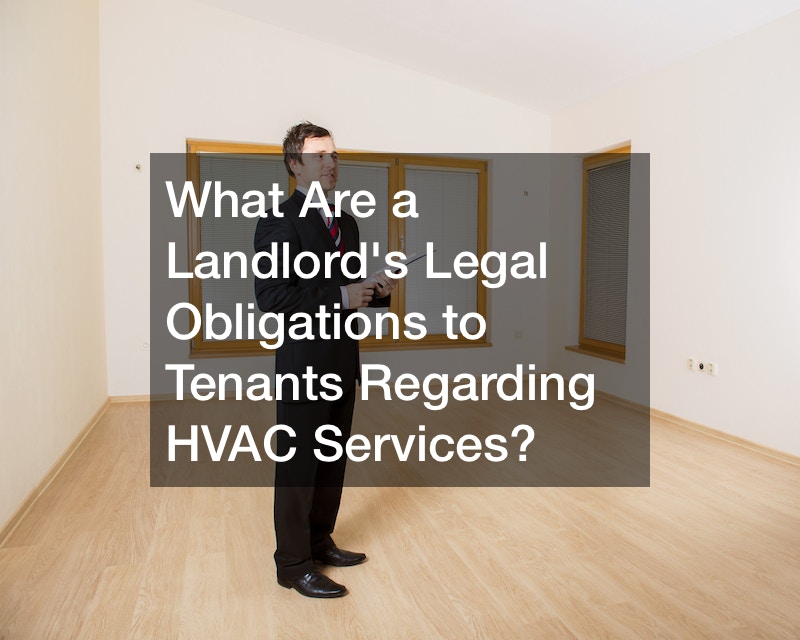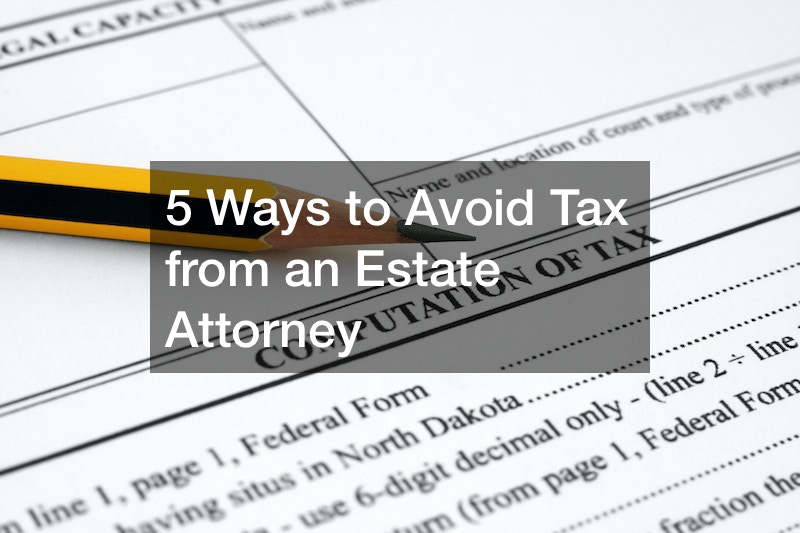
Obtaining proper tenant rights can be a tricky task. When a landlord plans to rent a property, they are legally bound to ensure that the property is in suitable living condition. At the same time, landlords have several legally binding obligations to their tenants. Landlord’s legal obligations to tenants should not overwhelm the property owner. Overlooking them could cause severe problems and costly consequences. The following are some landlords’ legal obligations to tenants regarding HVAC services.

Providing a Tenant With a Working Heating System and Heating Fuel
Providing a tenant with a working heating system and heating fuel is one of the landlord’s legal obligations to tenants for HVAC services. It ensures a tenant enjoys a safe and comfortable living environment. When possible, avoiding HVAC problems and handling them on time is essential. One of the issues that can arise during this process is providing heating fuel. It is the property owners’ role to provide this service.
In the event the landlord is not providing heating fuel, tenants may often pose an important legal question. Tenants may often ask whether or not a landlord provides all of the other services that are part of the lease agreement. One may also seek to know if the building owner is still required to provide heat. The answer to these questions can vary depending on whether or not the landlord has a legal obligation to provide HVAC services.
Landlord’s legal obligations to tenants are dictated by city, county, and state laws and by leases they have signed with their tenants. The requirement for landlords to provide heating fuel and ensure that their tenants have access to a working heating system may vary. In most cases, the law does require the landlord to provide heat and fuel. To avoid problems with providing heat, landlords must be aware of specific laws regarding this issue.
On top of this, they should ensure they do not run afoul. Property owners also need to understand their legal obligation and provide a remedy where there is one. They must ensure they understand the landlord’s legal obligations to tenants regarding HVAC matters. The landlord must always provide a working furnace to qualify as protection against negligence and liability.
This means that the furnace of the rental unit needs to be fully functional and operating at its peak. Landlords must also ensure that there are no carbon monoxide gas leaks within or around the heating system. In addition, landlords must supply their tenants with heaters that produce hot air to compensate for heat loss from other sources. Ignoring these issues can result in fines and threatened eviction.

Choosing the Right HVAC Systems
Choosing and purchasing an ideal HVAC system is also part of the landlord’s legal obligations to tenants. The tenant’s safety and comfort are the landlord’s priority. Every rental unit needs to be appropriately installed, maintained, and serviced AC installation of the heating, ventilation, and air conditioning systems. The system must be capable of maintaining the desired temperature year-round.
It is best to have a system that can provide heat in cold weather and cool air in the summer months. On top of this, there are some legal ramifications of installing an HVAC unit you need to know about. For example, the tenant is your legal tenant, and thus you must provide all of the services included in the HVAC contract. Contrary to this, you risk being sued by them for not having one installed.
In addition, if you decide to terminate or amend the contract, you must do so in a manner that is consistent with your obligation to provide services. Not all HVAC systems have been designed equally. Each system has its advantages and disadvantages. It is essential to know what they are when choosing an HVAC system for your tenant. Some ask why HVAC packages are more expensive than the homemaker’s air conditioning and heating units.
The answer is simple. It is a maintenance-free unit with a warranty. It works well in an apartment building, has energy-saving features, and comes with service support. Also, the company offers annual maintenance on all its products. With this, the tenant can have someone come and maintain it on their behalf. You may wonder if you are legally required to install HVAC systems in your rental properties. The short answer to that question is yes.
One of the landlord’s legal obligations to tenants is to provide all the services required for your rental units by law. You must make sure that all of the required services get installed and that they are adequately maintained. Landlords should take the right HVAC system for rental properties very seriously. This will save them money in the long run and ensure high maintenance costs and faulty systems do not inconvenience tenants.
Repairing the HVAC System
Landlord’s legal obligations to tenants to provide heat in a leased property are determined by state law. Lease agreements might entail installing HVAC units. It depends on how your lease is written. In addition, it will depend on how the state law deals with that, and there are no explicit rules. The landlord has several options for dealing with a defective heater during the lease term. One is that the building owner could repair or replace the heating system himself.
A defective heater may be a safety hazard to a tenant. A landlord may not even have to repair or pay for repairs to the heater if there is proof that the tenant or his guest(s) is responsible for the damage. The building owner may present those facts in court when the tenant disputes the claim. If one cannot prove that the damage was caused by a tenant or his g st(s), one will have to replace the defective heater. n this case, in most states, the building owner must hire an air conditioning repair contractor to make the repairs.
The lease agreement could also provide that repairs be made, but no mention is made of replacement. The landlord would be responsible for those repairs if heating is provided by gas or oil services. This applies to appliances or heating equipment that receives energy from an external source like electricity, gas, or oil. The landlord cannot ask tenants to pay for heating and cooling repair services.
Property owners are responsible for making repairs. They may also need to look for equipment rentals if they cannot do the repairs within a reasonable time. Most states’ laws vary on this issue, but some apply this rule. Landlords may also consider the rental services before replacing an HVAC unit to ensure the tenant is safe and comfortable. Contrary to this, they should be ready to present the state law that supports their case.
The landlords need to be aware of the tenant’s right to HVAC company services in court and use their legal rights accordingly. The rules may be different regarding gas or oil appliances and heaters. Some rules apply here because heating has its roots in laws governing public safety. Landlords must protect tenants from unsafe conditions known to be dangerous but not necessarily imminent. Some states require landlords to remove hazards without giving tenants notice and time for repairs.

Maintaining Heaters During the Lease Term
Among the landlord’s legal obligations to tenants are maintaining the heating and cooling systems of their rental property. The responsibility includes periodically checking the residential HVAC system for potential problems. It also entails servicing the system as necessary. Suppose a tenant’s heating or cooling system breaks down. In that case, the building owner could be subject to fines, fees, repairs, or replacement of the broken unit without specified notice.
Ensuring tenants’ safety and meeting the landlord’s legal obligations to tenants about HVAC services as property owners is vital. As the tenant, you must understand these laws before you sign a lease with an unreliable landlord. To fully grasp your legal rights as a tenant, it is best to consult with a lawyer if you have any doubts whatsoever. As a result, you can be confident that you are not being taken advantage of in your lease.
It is better to be safe than sorry about your living situation. As the weather gets colder and winter approaches, ensuring that your HVAC system is working and in good condition is vital. Your landlord may be legally obligated to provide a working heating system and a heating and cooling repair or replacement service when necessary. When actively searching for a new apartment, contacting the property manager of your desired location and discussing your HVAC concerns in more detail is also beneficial.
If you have a faulty system, you can ask your landlord to make the necessary repairs or replace it. Your landlord may not know of the problem until you bring it up. If they are aware of an issue, they will work on rectifying any problems without charge unless there is negligence. Be sure to ask the landlord or property manager to give you a detailed account of what is wrong with the system. Staying warm and comfortable will allow you to live better and be more productive throughout the winter.
You want to know exactly how much damage was done and what residential HVAC services are necessary. If necessary, you will need this information as part of your court case/litigation. It should not be hard for the landlord or HVAC contractors to provide. If the landlord or property management company refuses, you can then sue in court for the money. You must file a summon for the case through your local county clerk’s office.

Inspecting the HVAC System Periodically
Some people may not seriously consider providing heating and air conditioning in a rental property. You may think that this means you only have to worry about the system if it breaks down. Still, even if everything is working fine, landlord’s legal obligations to tenants require you to ensure your HVAC system is in good shape. These obligations stem from state legislation and building codes.
The state legislature can create specific standards for landlords to follow regarding the care of their rental properties. On the other hand, building code requirements ensure that every rental property meets minimum safety standards stipulated by government regulations. The specific responsibilities vary by jurisdiction. To determine the landlord’s legal obligations to tenants per your area’s law, check with your state and local authorities for more information.
Landlords are generally responsible for heating system inspections in the areas they control. This includes individual apartments, common areas, and hallways. The landlord must perform an inspection at least once a year. They must also keep a record of these inspections. The landlord may hire someone else to provide heating services, including furnaces or boilers. Despite this, the building owner is still responsible for monitoring it and ensuring it works correctly.
Predicting when your boiler or furnace will go out can be challenging. Landlords must ensure that the heating system is in proper working order at the start of each tenancy. Suppose they fail to change the filters when indicated by a local ordinance. In this case, the property owner may be responsible for any damage. This includes physical damage such as cracked pipes or ceiling leaks. It also entails emotional or mental damage, such as stress and anxiety over staying warm or comfortable.
For some reason, your heating system may fail or otherwise malfunction. If you have doubts that something is wrong with your system, contact a licensed heating contractor to inspect it. The inspectors will be able to determine the problem and help you address any issues promptly. One of the landlord’s legal obligations to tenants is promptly correcting the issue. With this, the tenants do not suffer in any way. If an electric heater does not work correctly, the tenants should not be forced to use it until it is repaired.
Property owners are responsible for the upkeep and maintenance of their buildings. In addition to this responsibility, landlords also have legal obligations to tenants. As always, it is up to the tenant to understand their rights regarding HVAC services. Property owners must also be aware of all the landlord’s legal obligations to tenants concerning these services. Both parties must be on the same page regarding the cost of maintaining a heating system. As a result, no one is left in the cold if anything goes wrong.



